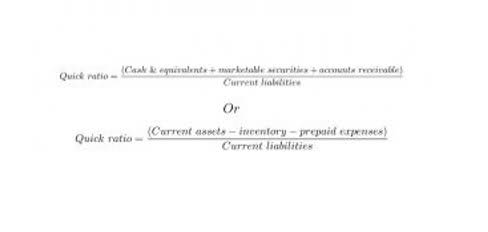
There has also been diversity in practice in determination of whether a contribution is conditional or unconditional, according to FASB. With this disparity in practice, some nonprofits account for government grants as contributions, while other organizations account for them as exchange transactions. The distinction is important because these two types of revenues received are treated differently from an accounting perspective. Contributions generally are reported in the period the pledge or commitment to donate is received, whereas exchange transactions are subject to the revenue recognition rules, including robust disclosure requirements.
Digital Risk Management Toolkit

For example, based on previous experience, you might record an allowance for doubtful receivables in anticipation of future losses on them. Once the OBBB is signed into law by President Trump, the next step will be implementation. For additional information, please contact Nonprofit Organizations Practice Group Leader Joshua D. Headley () or Government Relations Principal Edward Hild (). Several recent Accounting Standards Updates (ASUs) from the FASB could affect nonprofit organizations. Additionally, nonprofits might want to follow an ongoing FASB project that might result in one or more ASUs in the near future.
New Income Tax Credit for Contributions to Scholarship Awarding Charities
Nonprofits can provide additional clarification to the written terms of a common control lease agreement, provided it does so in writing. The 2017 TCJA requires nonprofit organizations to delineate income into distinct silos for each activity. All losses carry forward, and in any taxable year, up to 80% of unrelated business income may be reduced by losses carried forward from previous years. Non-profit organizations recognize revenue from contributions when the donation is received or at the time the promise to give is bookkeeping made, depending on whether the contribution is conditional. To recognize revenue, the non-profit must have an unconditional promise, and the amount must be measurable. Non-profit organizations need to carefully assess the nature of revenue transactions to determine appropriate recognition.
- For instance, IRS Form 990 mandates detailed reporting of functional expenses, making accurate records essential.
- Nonprofits must also comply with the Internal Revenue Code (IRC) to maintain tax-exempt status.
- Understanding when to recognize revenue from pledges and contributions is crucial for non-profit organizations to accurately reflect their financial position and comply with accounting standards.
- So, GAAP has also had to evolve, and multiple organizations in different niches of accounting continue to guide that process to ensure it’s holistic.
- For many public entities, the most significant changes will result from adopting the new segment reporting and income tax disclosure requirements.
SERVICES

Generally Accepted Accounting Principles Medical Billing Process (GAAP) concerning revenue recognition have created much confusion and consternation in the non-profit arena. GAAP requires companies to recognize revenue when they realize and earn it, not when they receive cash. This means that organizations that receive multi-year grants that are classified as contributions must recognize all the revenue from the grant in the year the grant was given.


Our free courses provide in-depth knowledge on key accounting principles, budgeting strategies, and reporting requirements to help your organization thrive. Non-profit organizations often face complexity in revenue recognition, particularly when dealing with pledges, contributions, and other forms of revenue that span over time. This section explores practical considerations and provides examples for different types of transactions. The shift from traditional ledger-based work to strategic decision-making is especially apparent in accounting for nonprofit organizations. Accountants must now be data-driven, mission-aligned, and equipped with tools to navigate complex donor requirements and funding models.
- Thirty-nine states (plus the District of Columbia) require charitable nonprofits to register with the state in order to fundraise in that state.
- While for-profit organizations orient their accounting practices around the goal of turning a profit, nonprofits’ main goal in accounting is financial transparency with donors, stakeholders, and the government.
- Exchange transactions, where goods or services of equivalent value are provided, follow ASC 606 guidelines.
- GAAP also lays the foundation for accurate tax accounting, helping organizations remain compliant while optimizing their financial reporting.
When nonprofits receive pledges and contributions, careful consideration must be taken to classify and recognize these revenues accurately. GAAP is not just a regulatory preference, but a foundational framework that underpins financial reporting in the United States. It is necessary to establish clear expectations for how financial statements are prepared and presented, offering consistency and comparability for all stakeholders. Without such a standardized structure, both entrepreneurs and nonprofit organizations would face significant credibility obstacles, increased risk of error, and diminished trust from donors, regulators, and investors. Non-profit organizations are responsible for presenting pledges and contributions in their financial statements with a clear distinction between restricted and unrestricted funds.
The government-wide effective date of the revisions is October 1, 2024; however, federal agencies may elect to implement the revisions as early as June 21, 2024. GAAP for Nonprofits The increase in the audit threshold from $750,000 to $1,000,000 is effective for auditee fiscal years beginning on or after October 1, 2024. At Clarity, we specialize in providing clarity for nonprofits and entrepreneurs navigating the nuances of nonprofit and for-profit financial strategies.